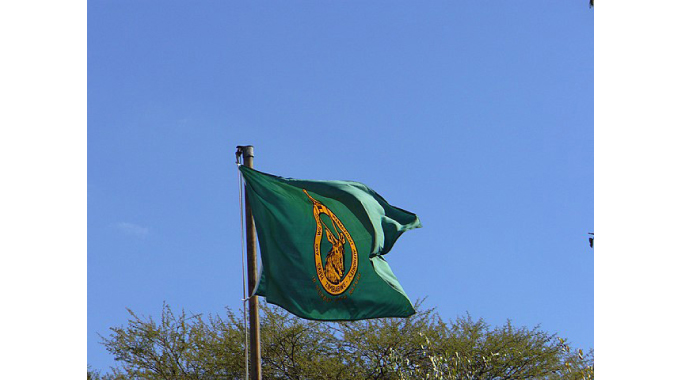The Chronicle

Reports say about 35 people across the country have been killed by animals since January.
A number of them were killed by elephants.
Two of them were trampled by the large mammals – one of them in a church yard – in Victoria Falls within six days of each other.
 Victoria Falls
Victoria FallsExactly 10 days after the killing of the last victim, Israel Ndaba, the African Elephant Conference started at Hwange National Park.
The meeting, which ended on Thursday, could not have been staged at a more poignant moment. Also, it could not have been staged at a better venue.
It was called for leaders, conservation groups and communities living adjacent to wildlife zones to discuss ways to better manage elephants.
They, too, discussed how the growing population of the animals, especially in Botswana and Zimbabwe, was deepening environmental degradation and human-animal conflict and how resumption in trade in elephants and ivory could assist in keeping the numbers in check.
Hwange National Park was a good venue for the conference.
It is the country’s largest animal reserve.
It is also home to about 50 000 elephants, the largest elephant herd in the country.
 Zimbabwe Parks and Wildlife Management Authority (Zimparks)
Zimbabwe Parks and Wildlife Management Authority (Zimparks)According to the Zimbabwe Parks and Wildlife Management Authority (ZimParks), that reserve must accommodate around 15 000 elephants yet has more than thrice the number.
The conference ended with a 14-point Hwange Declaration on the Conservation of the African Elephant.
In our view, two elements stand out of the 14.
Number one is the need for local communities to have a commanding voice in elephant management and conservation.
 Convention on International Trade in Endangered Species of Wild Fauna and Flora (CITES)
Convention on International Trade in Endangered Species of Wild Fauna and Flora (CITES)Number two is the need for the Convention on International Trade in Endangered Species of Wild Fauna and Flora (CITES) to be science-led in its decision-making, not being emotion-led.
“The conference noted that while the regional African elephant population is declining, the number of elephants in southern Africa is increasing, demonstrating good conservation practices that ought to be recognised and provide lessons learnt for other countries to emulate,” said the declaration.
“Hence countries with high elephant populations must be heard and listened to, and must benefit from their efforts in conserving their elephants.
The conference concurred that the voices of communities that co-exist with wildlife must be included in decision-making because they bear the brunt of living with wildlife.
Furthermore, community involvement in elephant conservation is required at the national, regional, and international levels.
There is a need to develop a functional Community-based Natural Resource Management policy and legislation that allow communities to receive benefits that outweigh the costs of management.”
As indicated, the local context is what must be the foundation of any decision-making, not the so-called animal rights campaigners sipping coffee in their gleaming offices in Washington DC, London, Bern, Berlin, Ottawa and so on.
 Hwange National Park
Hwange National ParkRather, it is Chief Dingani Nelukoba, who lives across the road from Hwange National Park’s eastern boundary; it is Mr Hanganani Dube who is now permanently disabled after he was attacked by an elephant; it is Ndaba’s wife and two minor children whose views must inform whatever elephant conservation decisions that CITES must make in Panama in November into the future.
It is ZimParks’ and Botswana’s Department of Wildlife and National Parks’ opinion that must be the basis of any discussions or resolutions on how the African elephant must be managed and conserved.
Individually and collectively they have mastered the job of conserving their elephants, which is why the animals are now too many for the capacity that exists, a capacity that cannot be expanded.
They know what conservation means and equally important, the need for them to derive a return from their hard work.
We think by placing local communities at the centre of all decision-making on elephants and other wildlife from now onwards, southern African elephant range states have a solid platform from which to lobby CITES to allow a resumption of trade in the large animal.
That way, Botswana and Zimbabwe would be able to control their elephant populations, they would be able to ensure greater environmental sustainability in game parks, they would be able to limit human-wildlife conflict and ensure that elephants pay for their upkeep.
Article Source: The Chronicle
